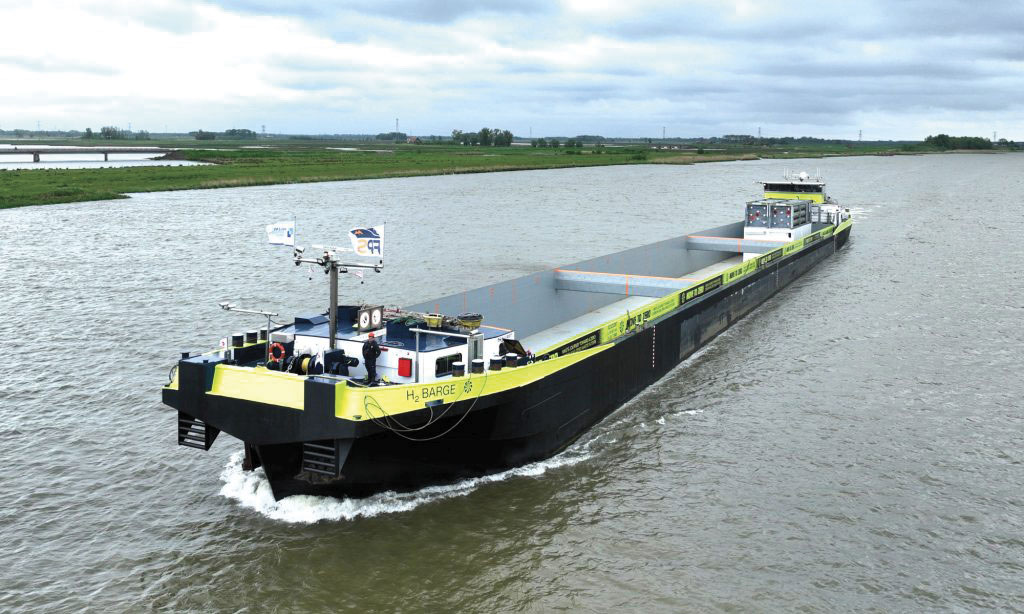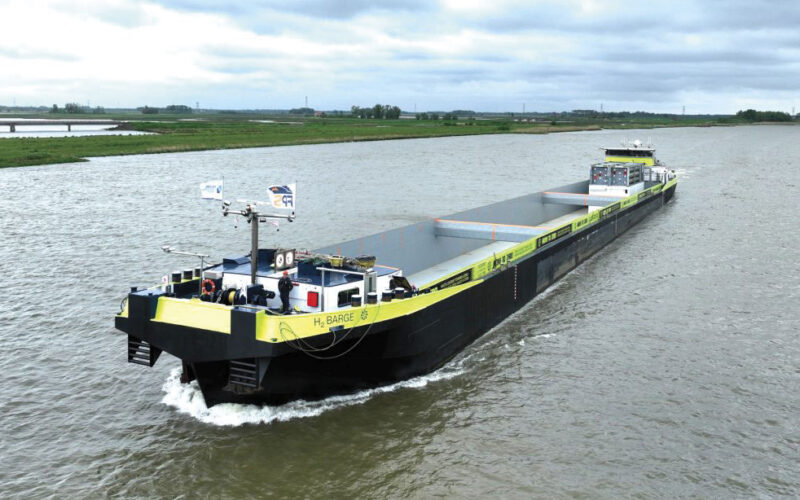
Elliott Bay Design Group (EBDG) will design and build a hydrogen fueling barge under the terms of a one-year $590,000 contract agreed to by the Port of South Louisiana’s Board of Commissioners.
The hydrogen fueling barge will reportedly be built in three stages and be the first of its kind in the U.S. and the second in the world.
“The barge will be a fueling station for a new fleet of hydrogen-powered vessels,” said Micah Cormier, director of communications for the Port of South Louisiana.
The barge project, he said, “will trigger private investment in more than 16 hydrogen-powered tugboats by a private partner. We believe that the success will lead to additional investments in hydrogen-powered vessels.”
The Port of South Louisiana hydrogen barge project was funded from $50 million in grant money provided by the U.S. Department of Commerce’s Economic Development Administration to H2theFuture, a regional public-private partnership led by the Greater New Orleans Development Foundation.
According to the original grant announcement, H2theFuture plans to “transition the regional hydrogen energy sector away from fossil fuel-reliant forms of hydrogen and towards green hydrogen produced from renewable energy sources.”
In addition to construction of the hydrogen fueling barge, the coalition’s plan includes the creation of a development center for hydrogen-fueled ships.
Over the past several years, interest in the development and use of hydrogen as a maritime fuel has advanced in the U.S. and abroad, as both the public and private sectors have set specific deadlines to achieve the goal of zero emissions in the global marine transportation sector.
In May 2022, for example, Hydrotug, the world’s first hydrogen-powered tugboat, was launched at the Navia, Spain, shipyard of Astilleros Armón.
The following month, Oregon-based American athletic footwear and apparel maker Nike announced the launch of H₂ Barge 1, the first-ever hydrogen-powered inland container ship, which transports the company’s products between Rotterdam and Nike’s European Logistics Campus (ELC) in Belgium.
Last October, Hornblower Energy LLC, in partnership with the Port of San Francisco, the U.S. Department of Energy and six corporate entities, including Air Liquide and Glosten, said it would spearhead a project to demonstrate the feasibility and viability of the increased usage of hydrogen as a maritime fuel.
The project is located at Pier 68 in San Francisco. DOE selected the project for funding in 2020 with planning and modeling underway and completion scheduled for some time in 2025.
In November, Holland’s Lenten Scheepvaart took delivery of Antonie, the world’s first-ever newbuild hydrogen-powered inland shipping barge.
The hydrogen electric cargo ship was built by Concordia Damen Shipbuilding. The technical sea trials were held in late October, during which the ship was inspected by Lloyd’s Register and given a provisional certificate to be put into service.
Most recently, the groundbreaking methanol-to-hydrogen technology to be used to power the towboat Hydrogen One completed a successful string test in Gothenburg, Sweden. In the test, all the key components of the vessel’s power train were assembled and tested as a complete system.
Hydrogen One, scheduled to enter service this year, is being developed through a partnership between Maritime Partners, e1 Marine, ABB Ltd., and EBDG, and will utilize a system that converts methanol to hydrogen to charge fuel cells, with a switch gear driving the vessel’s thrusters.
Jeffersonville, Ind.-based American Commercial Barge Line (ACBL) will operate the Hydrogen One, considered to be the world’s first methanol-fueled towboat. •

